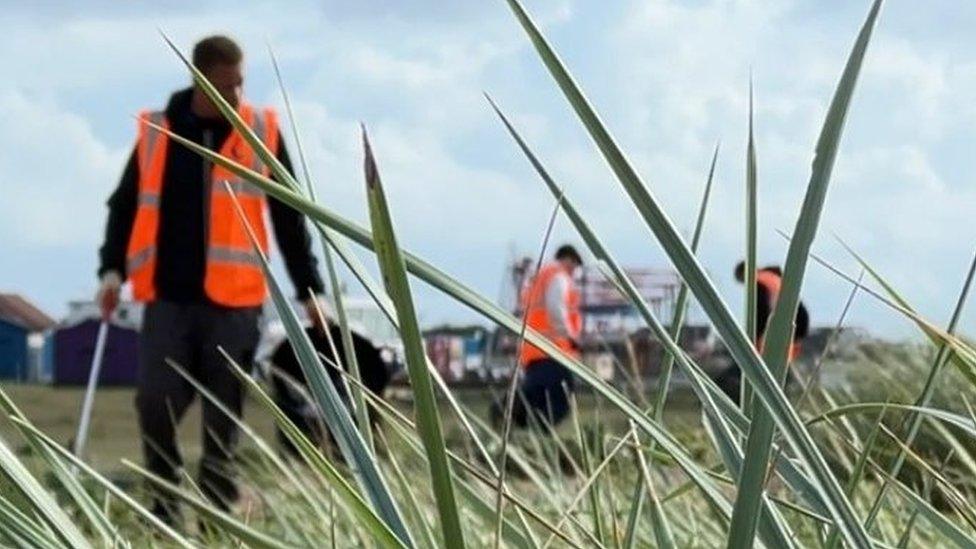'I took what wasn't mine - now I'm giving back'
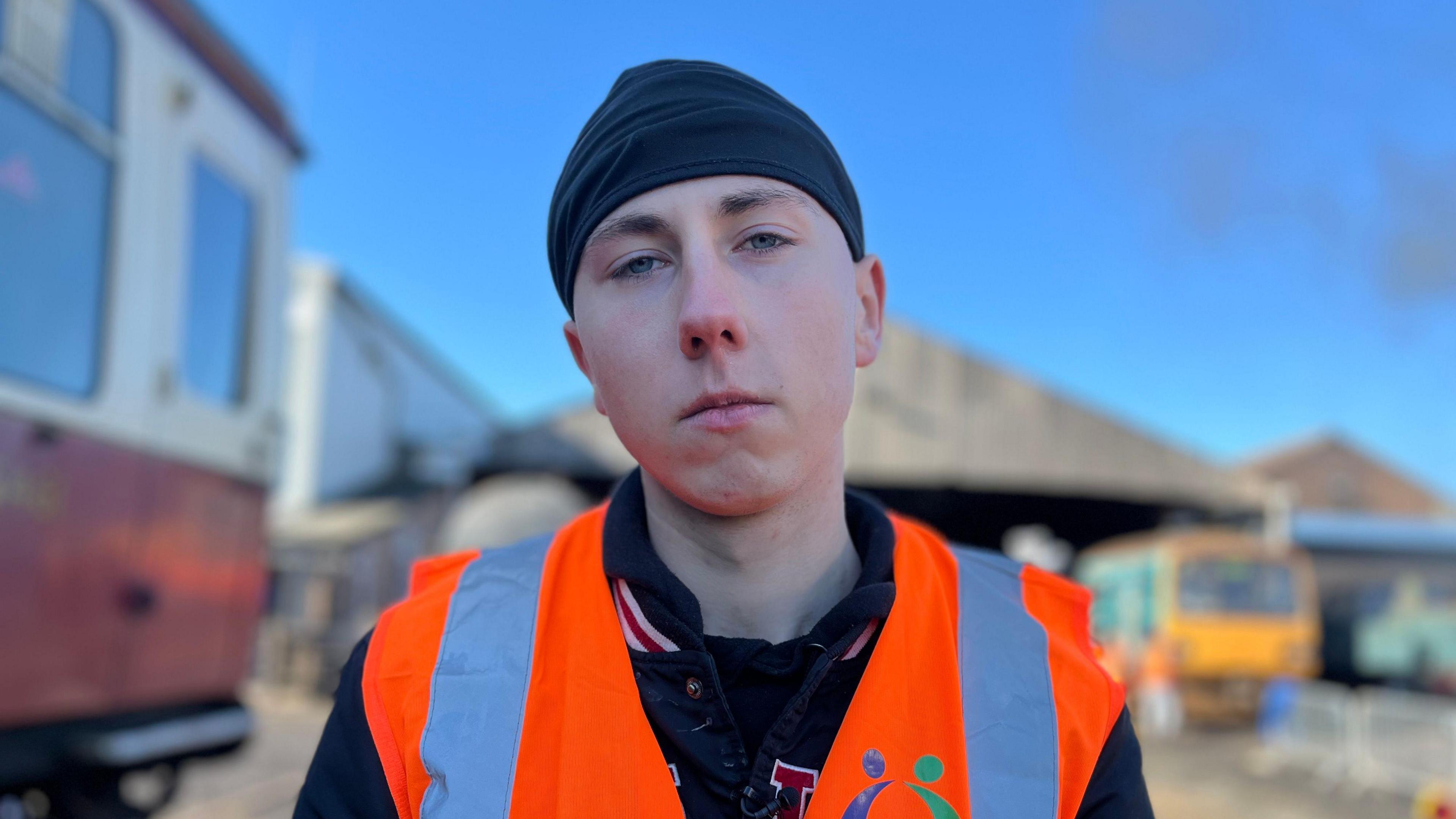
Ric is doing unpaid work after being convicted for theft
- Published
A man said carrying out unpaid work after being convicted of theft was an opportunity for him to give back to his community.
Ric, 22, from Peterborough, was part of a community payback group who worked for seven hours and 30 minutes at the Nene Valley Railway Museum in the city.
He said: "I took what's not mine. Now to give back, I'm giving my time and energy to make the community a better place."
It was not the first time he has been given a community sentence, external, but he said he hoped to learn from experience.
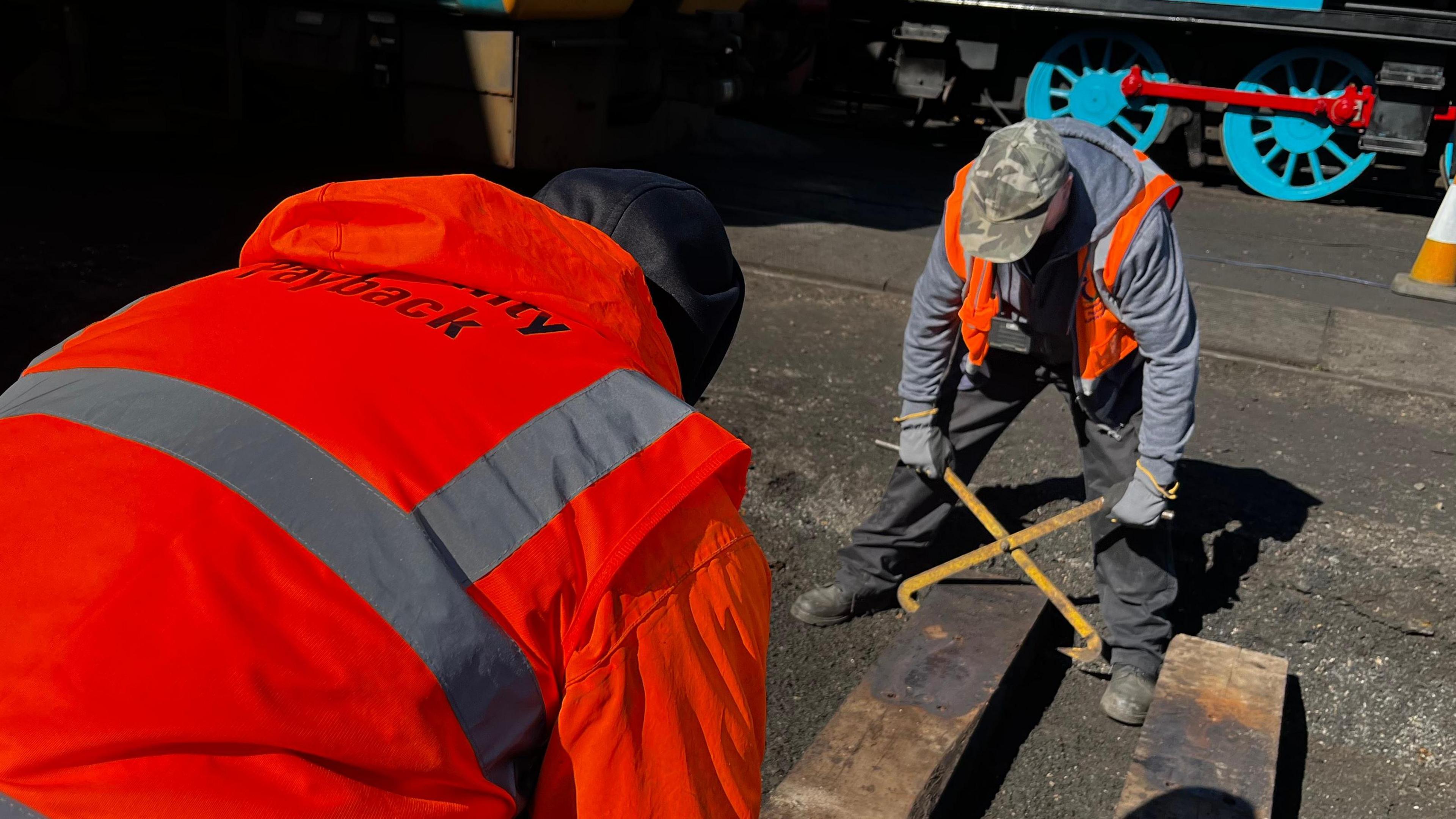
Supervisors on the community payback team help offenders learn skills they need to get a job
He said the cycle of being convicted for a crime and returning for more unpaid work was "getting too much".
"I finished my orders before and then a couple of months later would get arrested again for a similar thing. It kind of repeats itself.
"If I work this hard for free, imagine what I could do if I was doing proper work for proper pay," he added.
Mick Barry, a community payback supervisor, said he believed unpaid work helps people to stop reoffending.
"When we first started we were getting people coming back week in, week out, but now very rarely we see people reoffend.
"Probably because it's very hard work," he said.
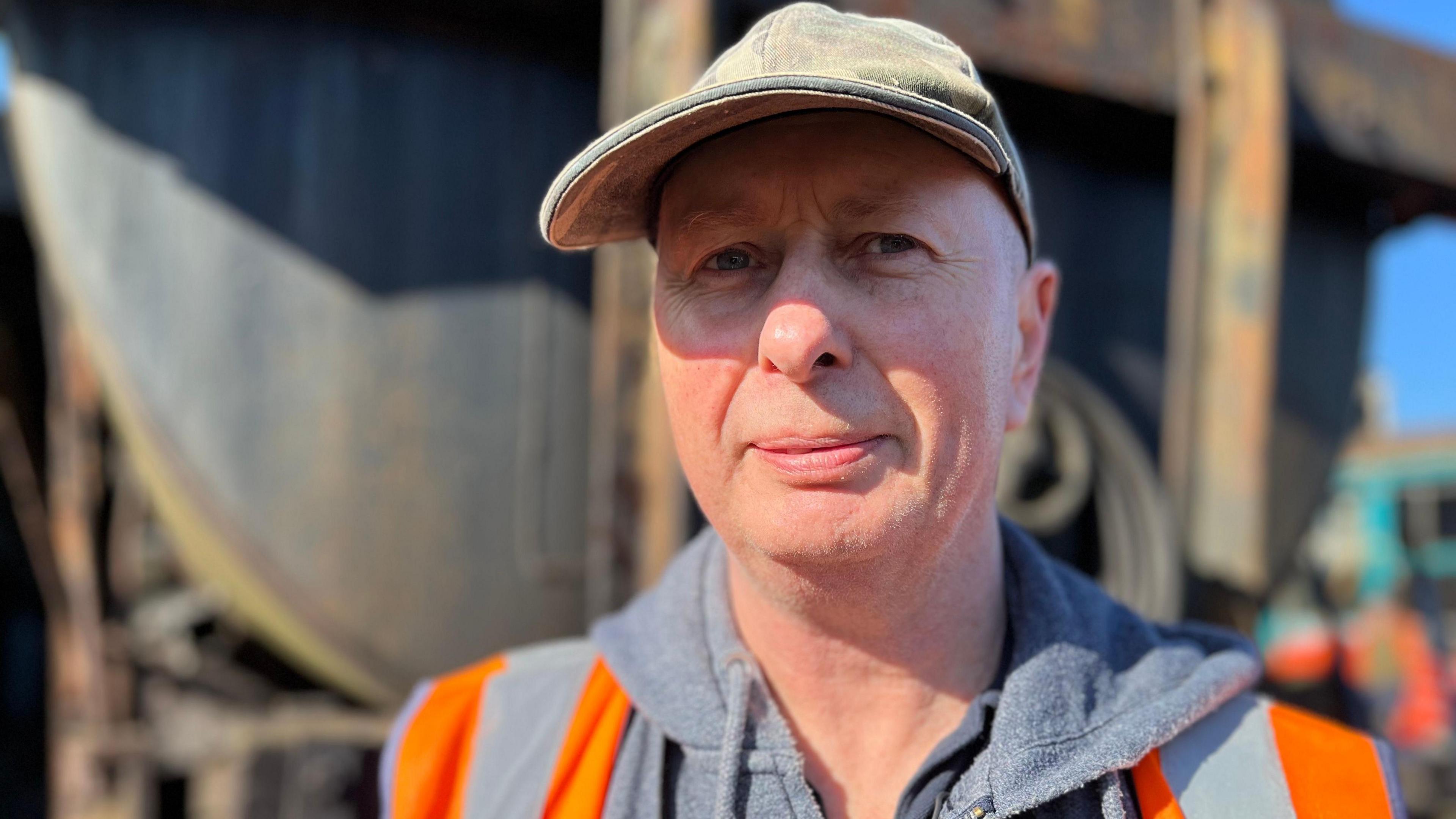
Mick Barry believes the community payback service helps reduce reoffending
People can be given an unpaid work sentence for a number of different offences such as benefit fraud, actual or grievous bodily harm, domestic violence or drink or drug driving.
If offenders on suspended sentences miss two sessions without good reason, they can be brought back before the court for further penalties.
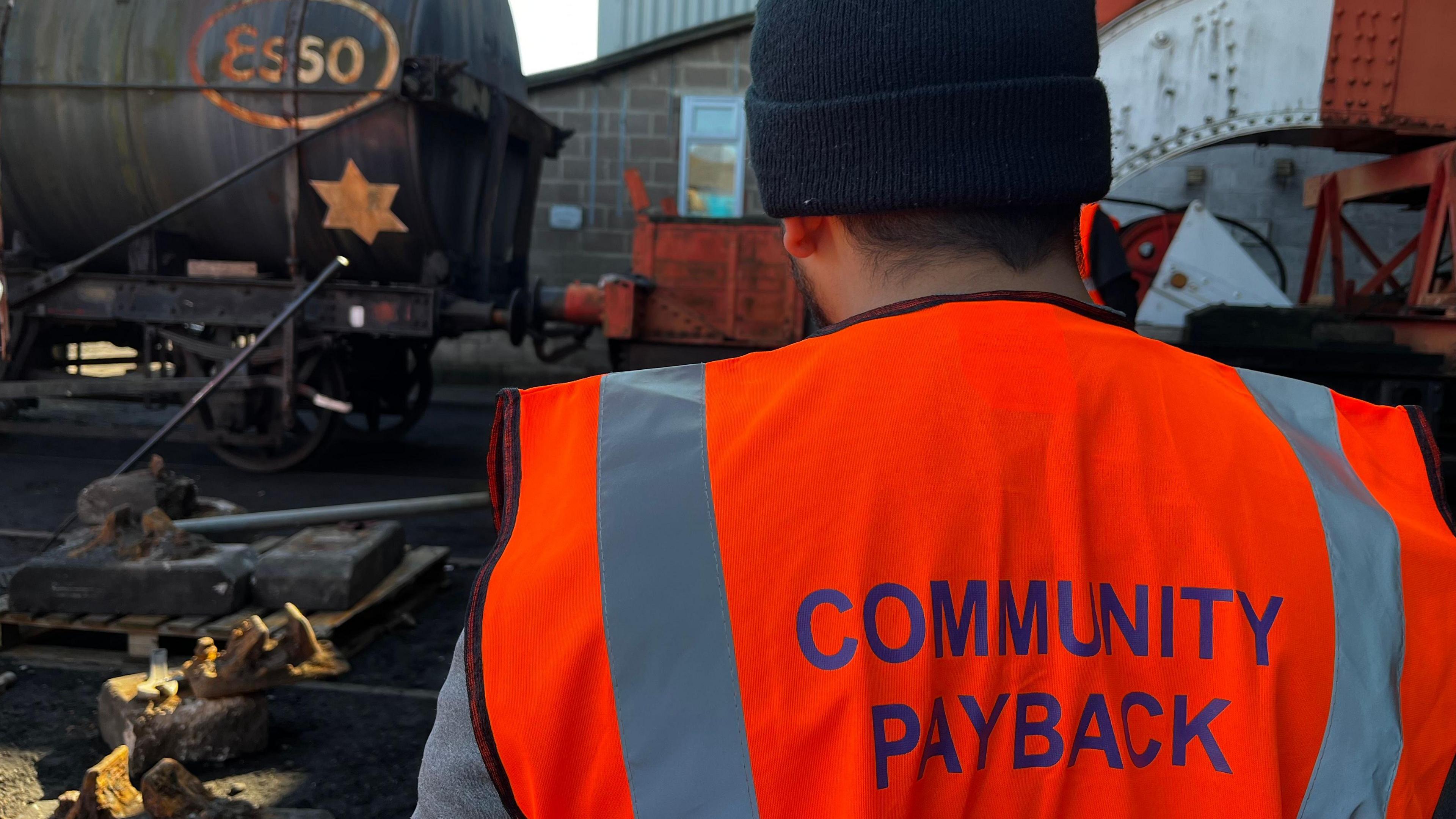
Richard Garside says offenders wearing community payback high-visibility jackets was a "pointless gimmick"
Offenders wear high-visibility jackets emblazoned with "Community Payback" while carrying out the unpaid work, which the government said allowed the public to see justice being served in their neighbourhoods.
The value of offenders wearing high-visibility jackets has been questioned by the Centre for Crime and Justice Studies.
Richard Garside, the charity's director, said: "Sticking offenders in hi-vis jackets is one of those pointless gimmicks that successive governments keep coming back to.
"I can't imagine that the average member of the public cares one way or the other, if indeed they even notice."
Yet Mr Garside was in favour of more community sentencing.
"Making more use of community sentences in place of unnecessary prison sentences, will be an important step in addressing the current prison crisis," he said.
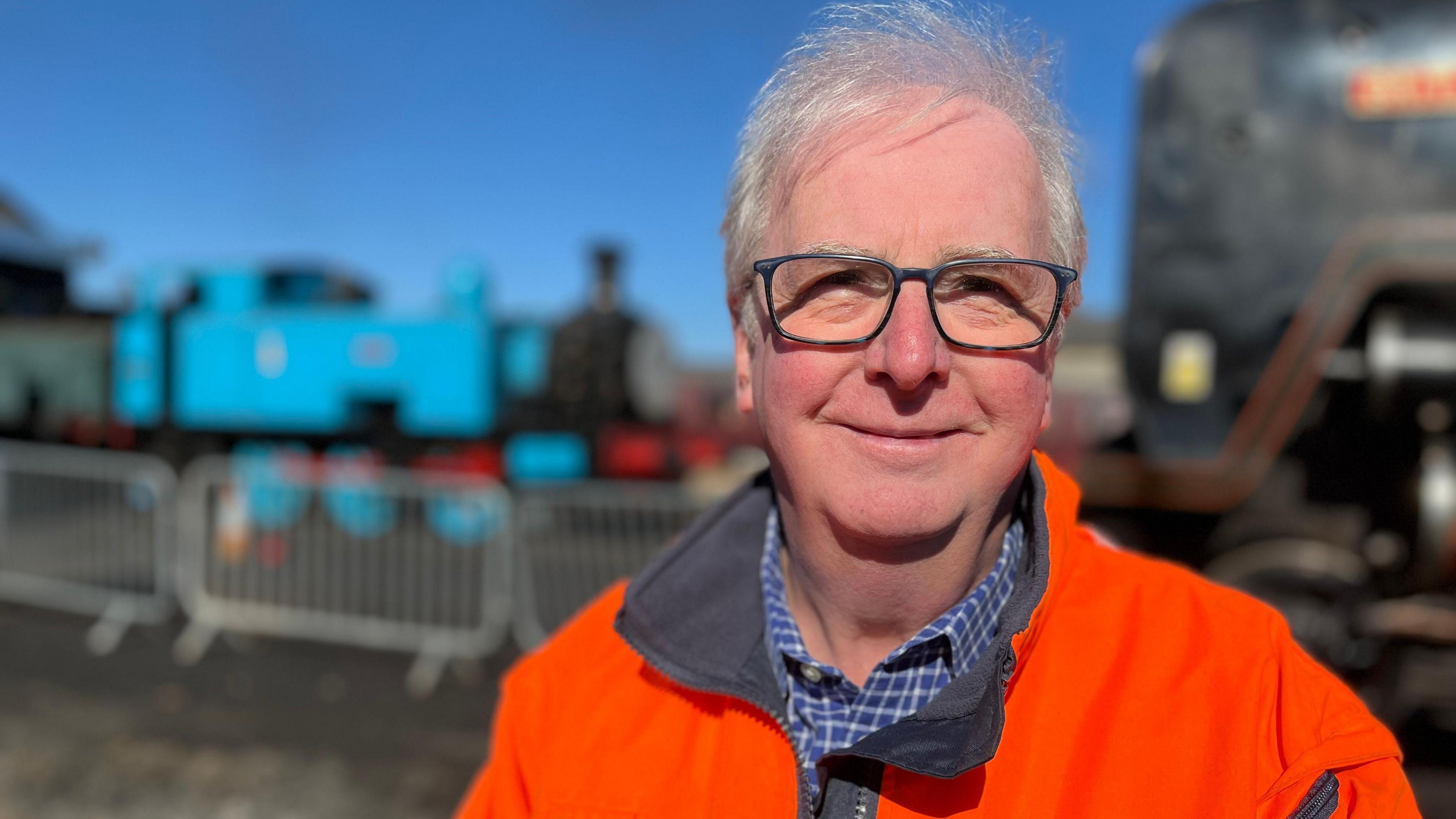
Michael Purcell says the programme offers an element of punishment and rehabilitation
The unpaid work team at the Nene Valley Railway Museum relaid a track bed at the site. The chairman of the charity, Michael Purcell, said it was "really important" work.
"I think there are skills that people get here that may stop them reoffending.
"They are having to exercise their muscles when they are digging so there is an element of punishment, but also I hope rehabilitation as well."
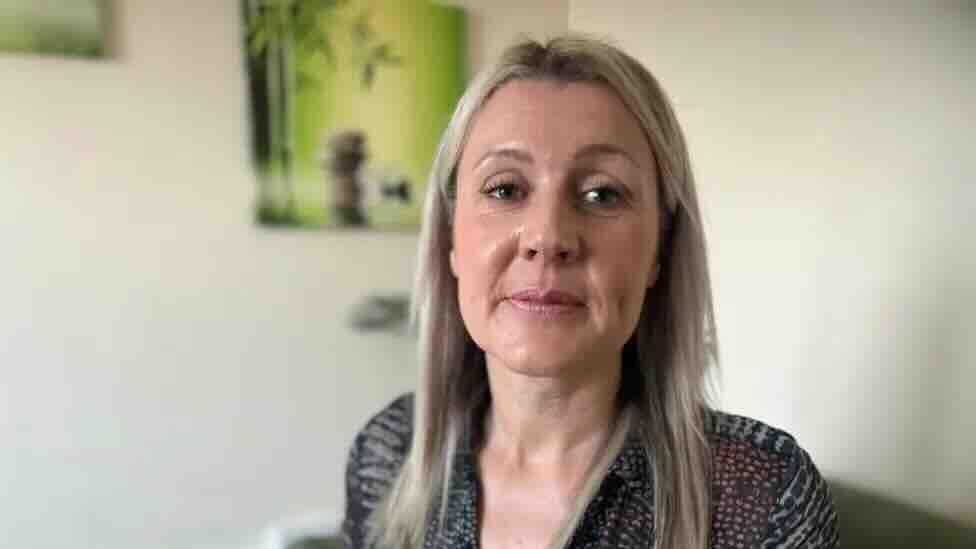
Mandy Geraghty says custodial sentences are safest for perpetrators of domestic violence
Mandy Geraghty, the CEO of Peterborough Women's Aid, a charity that works with victims of domestic violence, said: "We appreciate with prison numbers rising [judges] may look for alternative penalties.
"We would like to see community sentences alongside rehabilitation work, such as a perpetrator programme and restrictions around movement."
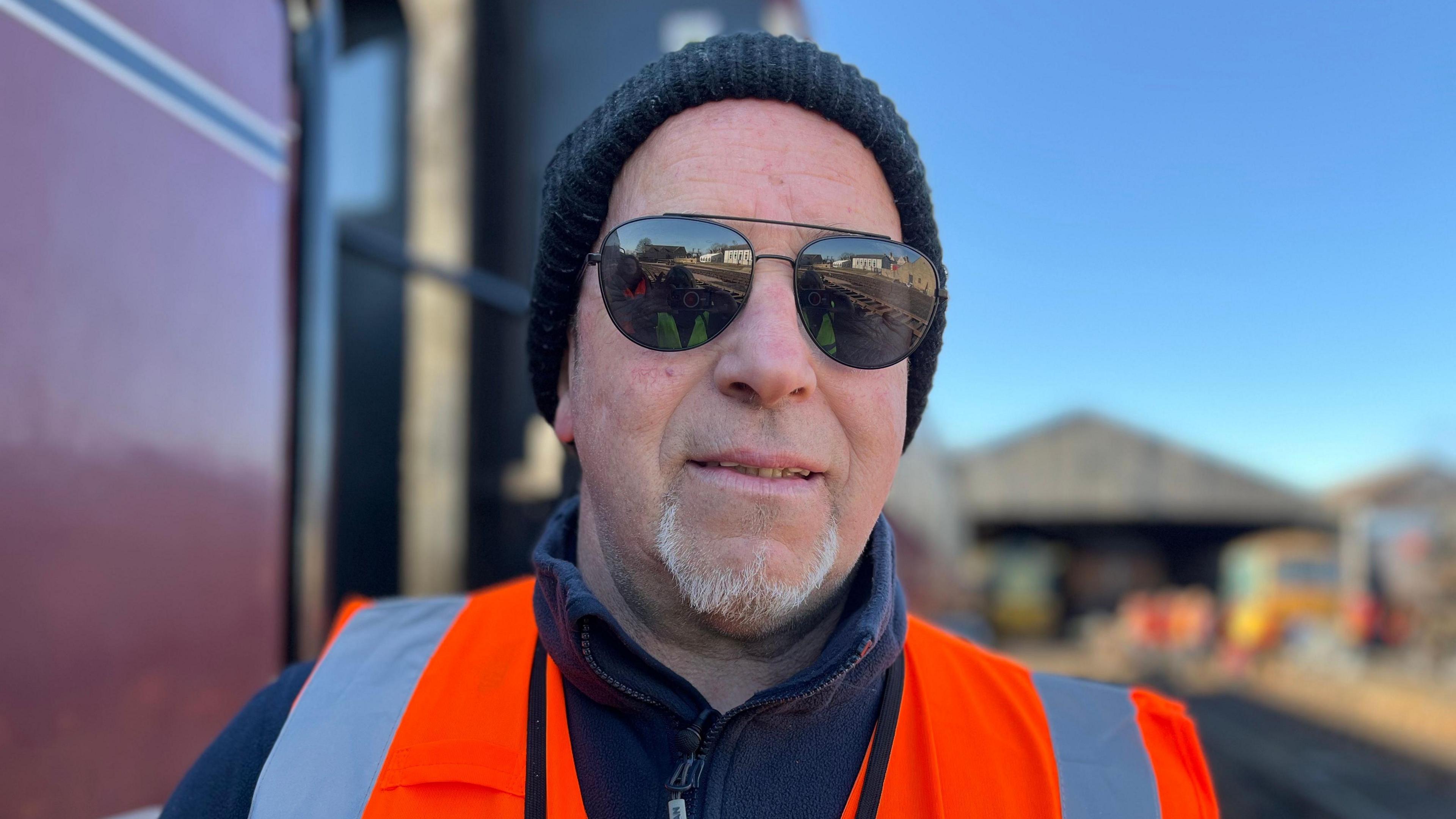
Michael Howes says some of the work would not get done without the community payback workers
Michael Howes, a community payback supervisor, said he hoped victims would think the penalty was tough enough.
"If they came down to see them working and see what they do. They are paying back to the community for the crimes they have committed," he said.
The Ministry of Justice said: "Evidence shows short prison sentences aren't working to reduce reoffending and can result in some of the lowest-risk offenders getting trapped in a revolving prison door.
"A short stint in prison moves offenders away from their homes, families, and jobs, despite these things being the very support structures that help reduce reoffending.
"Instead, these individuals can be punished in the community with a range of strict requirements."
Community sentencing will be looked at as part of the government's national Sentencing Review, external, which it said aimed to "end the crisis in our prisons".
Get in touch
Do you have a story suggestion for Peterborough?
Follow Peterborough news on BBC Sounds, Facebook, external, Instagram, external and X, external.
Related topics
More like this
- Published26 February
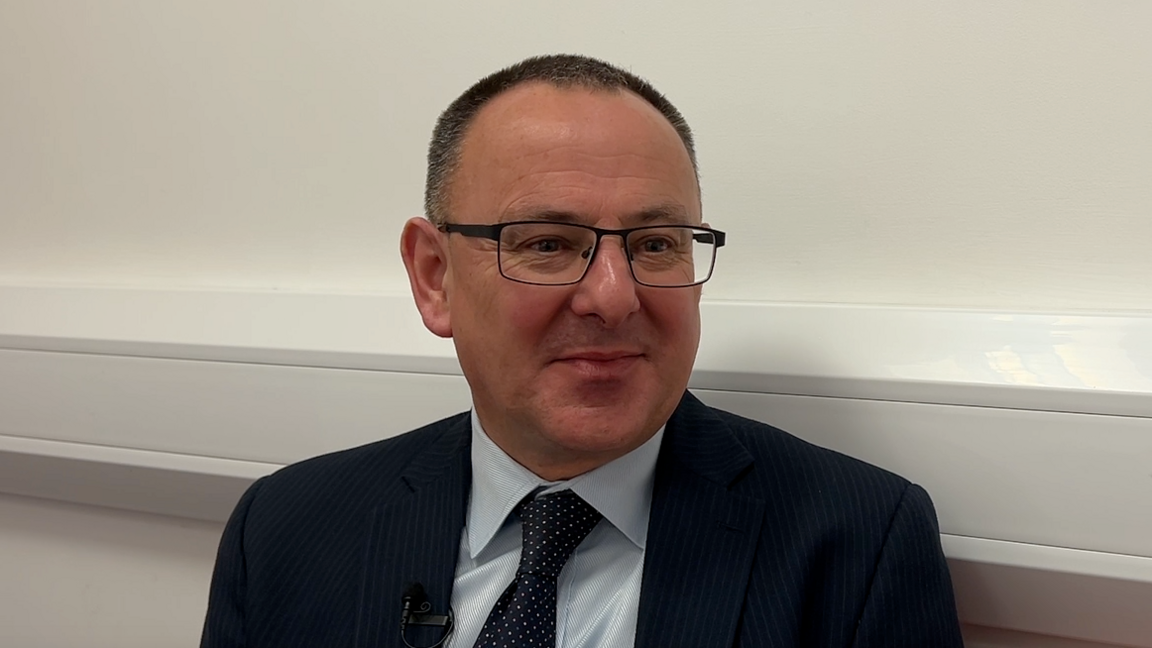
- Published22 September 2023
